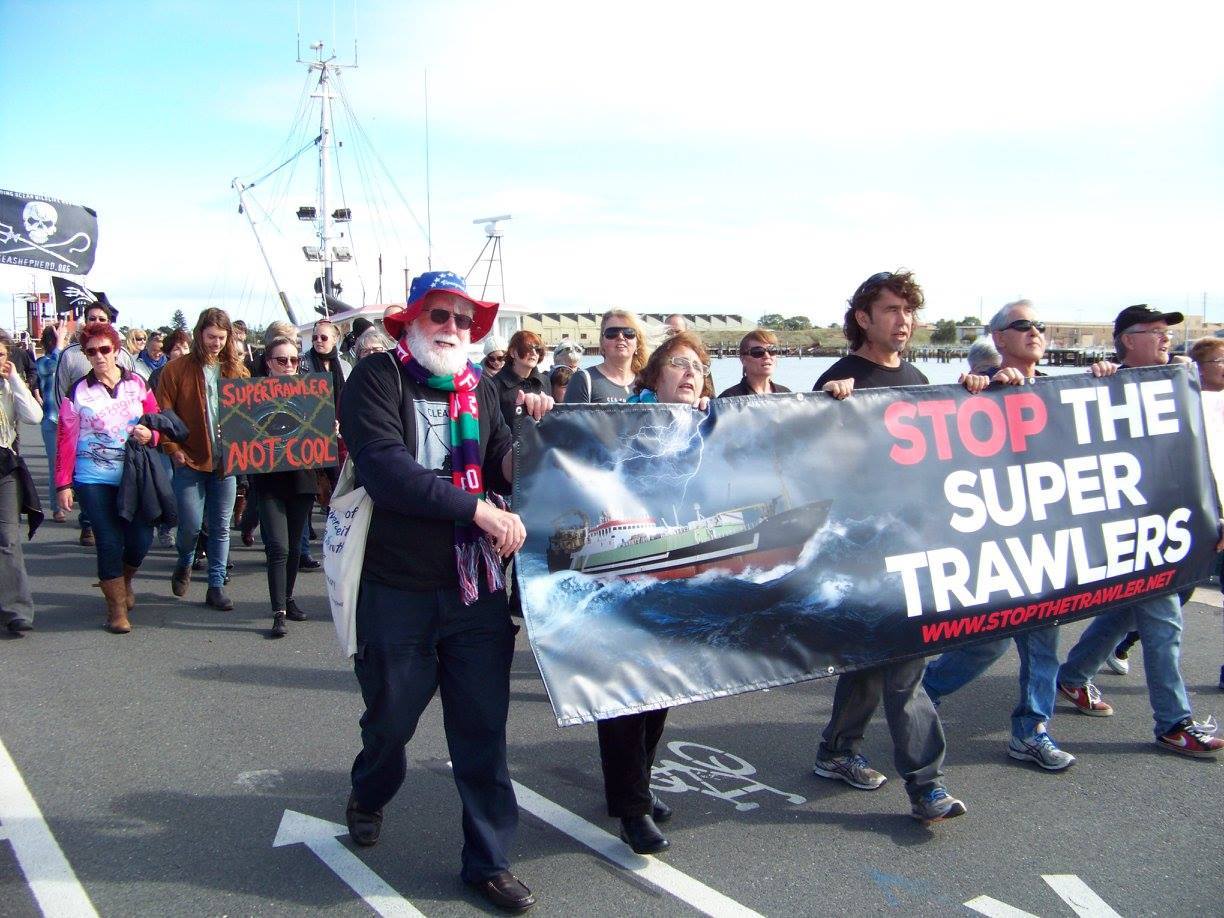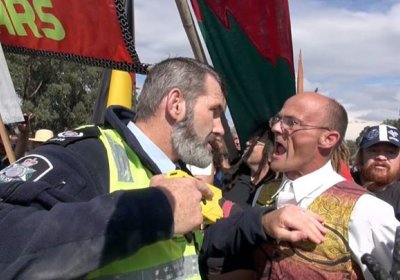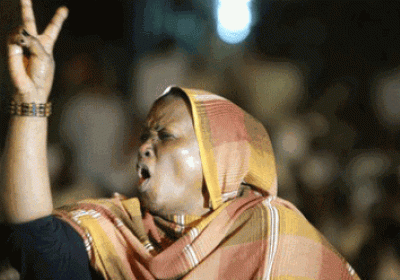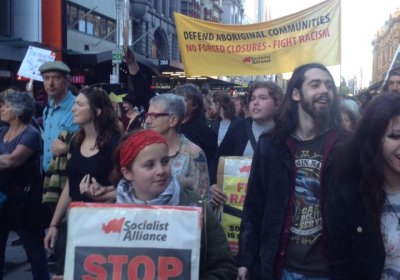1050
Saudi Arabia’s month-long aerial offensive against Yemen resumed on April 22, one day after the Saudi regime announced it was over. Yemen is undergoing a humanitarian crisis, with millions of Yemenis lacking basic access to food, clean drinking water and health care. The Saudi bombardment has only worsened the plight of the Yemenis, with schools destroyed, hospitals and healthcare facilities targetted, and electricity supplies cut off. Basic infrastructure is being shattered, threatening a catastrophic health crisis for Yemeni residents.
 About 100 people rallied against the Geelong Star super trawler in Adelaide on April 26.
The crowd gathered at Port Adelaide to oppose the 95-metre long factory ship which protesters say will hurt recreational fishing and damage the marine environment.
The rally then marched to Birkenhead Bridge and dropped a large banner that read “Stop the Super Trawler”.
About 100 people rallied against the Geelong Star super trawler in Adelaide on April 26.
The crowd gathered at Port Adelaide to oppose the 95-metre long factory ship which protesters say will hurt recreational fishing and damage the marine environment.
The rally then marched to Birkenhead Bridge and dropped a large banner that read “Stop the Super Trawler”.
 The fight against the WA government’s widely unpopular decision to close a number of remote Aboriginal communities and force Aboriginal people off their land received a further boost this week with news that activists are set to converge on the state.
The Grandmothers Against Removals, a group established to respond to the continued Stolen Generation enforced by the current and previous federal governments, will converge on Perth on May 26 to lend a hand in the fight against the closures.
The fight against the WA government’s widely unpopular decision to close a number of remote Aboriginal communities and force Aboriginal people off their land received a further boost this week with news that activists are set to converge on the state.
The Grandmothers Against Removals, a group established to respond to the continued Stolen Generation enforced by the current and previous federal governments, will converge on Perth on May 26 to lend a hand in the fight against the closures.
Australia has again declared war on its Indigenous people, reminiscent of the brutality that brought universal condemnation on apartheid South Africa. Aboriginal people are to be driven from homelands where their communities have lived for thousands of years. In Western Australia, where mining companies make billion dollar profits exploiting Aboriginal land, the state government says it can no longer afford to "support" the homelands.
About 800 refugees were drowned in the Mediterranean on April 18 when a boat carrying them from Libya, and trying to reach the south of Italy, capsized. Just three days earlier, more than 400 people drowned when another boat on the same route sank. Refugee deaths in the Mediterranean are rising sharply. “According to the UN and the International Organisation for Migration, 1,776 people are dead or missing so far this year, compared with 56 for the same period last year,” the April 24 Guardian reported.
- Previous page
- Page 2
- Next page








